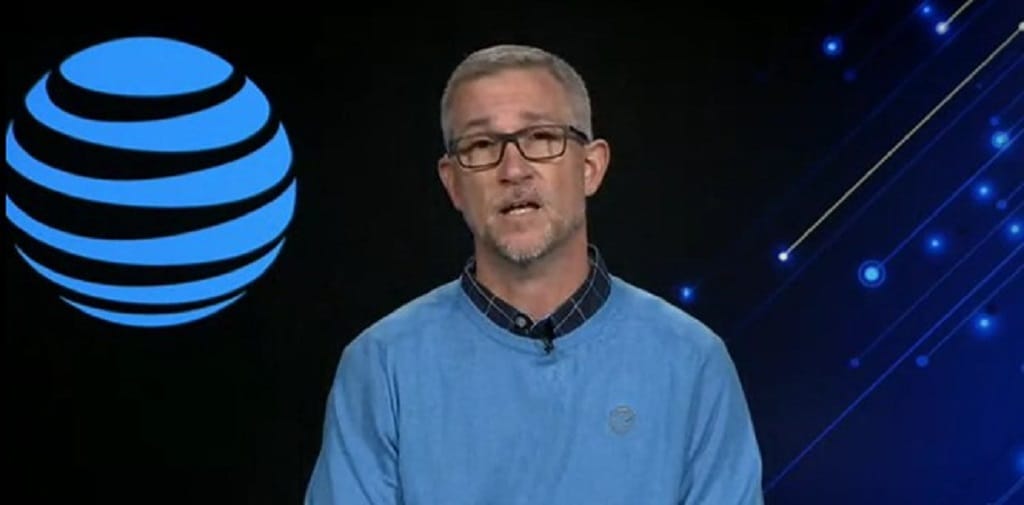At US Telecom Event, Broadband Leaders Call For Changes in Universal Service Funding Mechanism
December 4, 2020 — Broadband industry leaders on Thursday called for the Federal Communications Commission to modernize Universal Service Fund programs, and highlighted other steps critical to making broadband affordable and available to all Americans, speaking during a US Telecom forum. “Affordabil
Jericho Casper

December 4, 2020 — Broadband industry leaders on Thursday called for the Federal Communications Commission to modernize Universal Service Fund programs, and highlighted other steps critical to making broadband affordable and available to all Americans, speaking during a US Telecom forum.
“Affordability is a problem,” said John McElfresh, CEO of AT&T Communications, “35 percent of households which bring in less than $30,000 a year don’t have fast internet service.” McElfresh noted that the COVID-19 pandemic accelerated trends toward broadband inequality.
“This is just a preview of what lies ahead,” he said, “everything relies on broadband.”
Panelists throughout the event stressed the need to revisit the Universal Service Fund, a system of telecommunications subsidies managed by the FCC, intended to promote universal access to telecommunications services in the United States.
The program, created before the advent of modern broadband technology, originally operated as a mechanism by which interstate long distance carriers were assessed to subsidize telephone service to low-income households and high-cost areas.
The Telecommunications Act of 1996, which officially established the USF and placed its administration under the charge of the Federal Communications Commission and an agency that it created, expanded the traditional definition of universal service.
In particular, the traditional definition of universal service as affordable, nationwide telephone service was expanded to include broadband support via the E-Rate Program to eligible schools and libraries.
How speakers said the Universal Service Fund program needs to change
With broadband emerging as the new standard communication medium, many believe the FCC should transition the USF to subsidize broadband.
McElfresh called further for a change in the funding mechanism of USF, currently based on fees on telecommunications-based services. “Revenue from these services is declining and it isn’t working,” he said, adding that the current system penalizes wireline customer and is difficult to access.
Broadband experts agree that a lack of broadband data stands in the way of achieving universal service.
“We need to pinpoint the problem,” said McElfresh, who detailed that the Broadband DATA Act, which requires the FCC issue rules relating to the collection of broadband availability data, was enacted in March, but has yet to be fully funded by Congress.
While the industry leaders agreed on solutions to broadband data, affordability and adoption issues, they held different views on what the roles of public and private entities are when it comes to investing in infrastructure.
While the AT&T CEO championed the light-touch regulatory approach the Trump FCC has practiced, saying it “has served our country well,” panelist Frank Pallone, D-New Jersey, and chairman of the House Energy and Commerce Committee, said that when it comes to solving the lack of infrastructure issue, he doesn’t believe “that industry can bridge this gap alone.”
“The government needs to make those investments,” said Pallone, calling for government and industry to work together. Pallone noted the status of House Democrat’s Moving Forward Act, which authorizes $80 billion to build and upgrade broadband infrastructure, and which is currently stuck in the Senate.
Pallone, who has been very critical of the FCC under Chairman Ajit Pai, said he believes part of the problem is that the current FCC “acted as if state and local entities are the enemy, and preempted what they have done, rather than working with them.”
Pallone called for more cooperation and coordination between federal, state and local government.
In a panel that took place after McElfresh and Pallone gave keynote speeches, broadband champions called for strengthening the social contract of what it means to be connected. They further argued that a lack of infrastructure itself remains the largest barrier to connecting the approximate 21 million Americans who remain unversed.
“We need more players in the market,” said Nicol Turner Lee, senior fellow in governance studies and director of the Center for Technology at Brookings Institute, finding that increased competition will be the key to driving investment in infrastructure.
Turner Lee also called for the FCC to abandon incremental pay models, saying Americans need funding for these initiatives immediately.









Member discussion